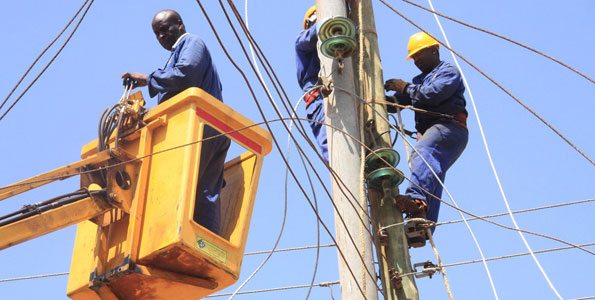Kenya’s grid-connected solar power electricity costs are expected to slump by a third in a proposed auctions system to substitute the existing fixed tariffs.
London-based Solarcentury, solar farms developer’s, says the new system of energy auctions to the lowest bidder is prone to reduce the cost of solar to about 8 US cents per KWh from the current feed-in-tariff of 12 US cent per kWh.
Energy Regulatory Commission director general, Joe Ng’ang’a said the move to embrace competitive auctions for generation projects is to cut down the cost of electricity.
“Everywhere an auction has taken place the cost have reduced considerably. Price discovery and competition is the best market regulator,” Mr. Ng’ang’a said.
The Ministry of Energy last month stated that it will adopt a World Bank model that switches fixed prices for auction sales where developers with the lowest bid erect power plants.
Strathmore University is Kenya’s first and sole grid-connected solar energy producer, selling 0.25 megawatts to Kenya Power since October 2015.
Solarcentury East Africa director, Guy Lawrence said achieving 8 cents to 9 cents per kWh for solar “shouldn’t be too complex” under an auction model, given the drop in prices of materials, use of refined technology, and accessibility of funds from investors. “It is impossible that the auction cost would be higher than the existing tariff,” said Mr. Lawrence.
“Solar power expenses are plummeting fast. It is set to fall further as technology efficiencies advance.”
Solarcentury has developed 4 megawatts of solar power in Kenya as well as an 858kW peak carport solar plant at Garden City Mall and Williamson Tea (1MW).
President Uhuru Kenyatta is depending on energy auctions for clean and cost-effective energy sources to reduce the cost of electricity to Sh10 per kWh from the current average of Sh20 per unit for domestic homes.
The move to auctions comes as Kenya has already signed 20-year power purchase agreements with almost a dozen financiers expected to erect grid-connected solar farms.
The pipeline of solar projects will see Kenya infuse 325MW to the national grid from sunlight, intensifying Nairobi’s usage of cheaper and renewable energy sources comprising biomass, geothermal, hydro and wind.
The planned solar farms, estimated to be done by 2018 consist of a massive 55MW plant in Garissa, 40MW plant in Malindi, a 30MW facility in Makueni and a 10MW farm in Gitaru.
There are an additional five solar plants each with a capacity of 40MW and located in Rumuruti, Kesses in Eldoret and Kibos.
Quint Power has also received authoritarian consent to build a 40MW solar farm at Nyakwere hills in Sondu Miriu.
The intended 10MW solar plant at Gitaru will mark KenGen’s entry into producing solar. The solar farm is situated at Gitaru which is KenGen’s major hydro power station with an installed capacity of 225MW.
